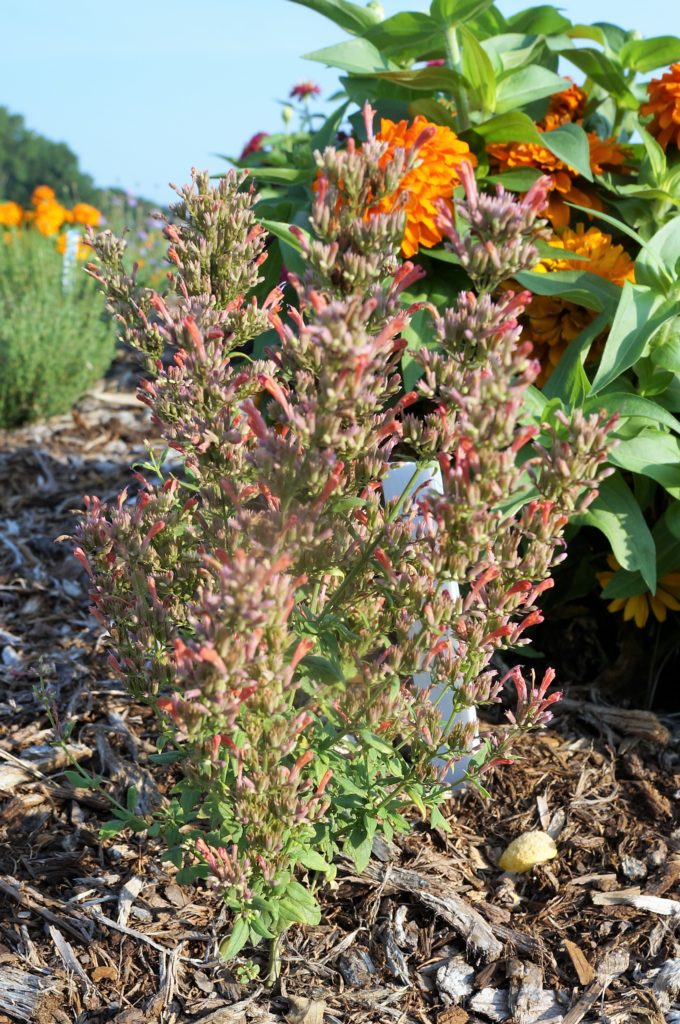Agastache Spp. “Little Adder”
go.ncsu.edu/readext?540395
en Español / em Português
El inglés es el idioma de control de esta página. En la medida en que haya algún conflicto entre la traducción al inglés y la traducción, el inglés prevalece.
Al hacer clic en el enlace de traducción se activa un servicio de traducción gratuito para convertir la página al español. Al igual que con cualquier traducción por Internet, la conversión no es sensible al contexto y puede que no traduzca el texto en su significado original. NC State Extension no garantiza la exactitud del texto traducido. Por favor, tenga en cuenta que algunas aplicaciones y/o servicios pueden no funcionar como se espera cuando se traducen.
Português
Inglês é o idioma de controle desta página. Na medida que haja algum conflito entre o texto original em Inglês e a tradução, o Inglês prevalece.
Ao clicar no link de tradução, um serviço gratuito de tradução será ativado para converter a página para o Português. Como em qualquer tradução pela internet, a conversão não é sensivel ao contexto e pode não ocorrer a tradução para o significado orginal. O serviço de Extensão da Carolina do Norte (NC State Extension) não garante a exatidão do texto traduzido. Por favor, observe que algumas funções ou serviços podem não funcionar como esperado após a tradução.
English
English is the controlling language of this page. To the extent there is any conflict between the English text and the translation, English controls.
Clicking on the translation link activates a free translation service to convert the page to Spanish. As with any Internet translation, the conversion is not context-sensitive and may not translate the text to its original meaning. NC State Extension does not guarantee the accuracy of the translated text. Please note that some applications and/or services may not function as expected when translated.
Collapse ▲Scientific Name:
Agastache spp. ‘Little Adder’
Common Name(s):

Agastache ‘Little Adder’
Photo by Tracie Bowers
Anise Hyssop
Categories:
Herbaceous Perennial
Comment:
As with all Anise Hyssop the leaves have a licorice scent when crushed. The flowers are edible and make a nice addition to salads
Height:
16 to 18 inches
Flowering Period:
Early summer to early fall
Flower Color:
Coral
Usage:
Accent plant, borders, good cut flowers, containers
Hardiness:
USDA zones 5-9
Propagation:
Easily divided in the spring, plant will spread by rhizomes and will self-seed in good growing conditions
Exposure:
Full sun
Soil:
Normal or sandy soil, neutral, acid or alkaline ph, well drained
Regions:
Mountains, Piedmont, Coastal Plain
Origins:
North America
Pollinator(s) attracted:
Bees, Butterflies, Hummingbirds
Page by Tracie Bowers EMGV

pollinator haven logo




